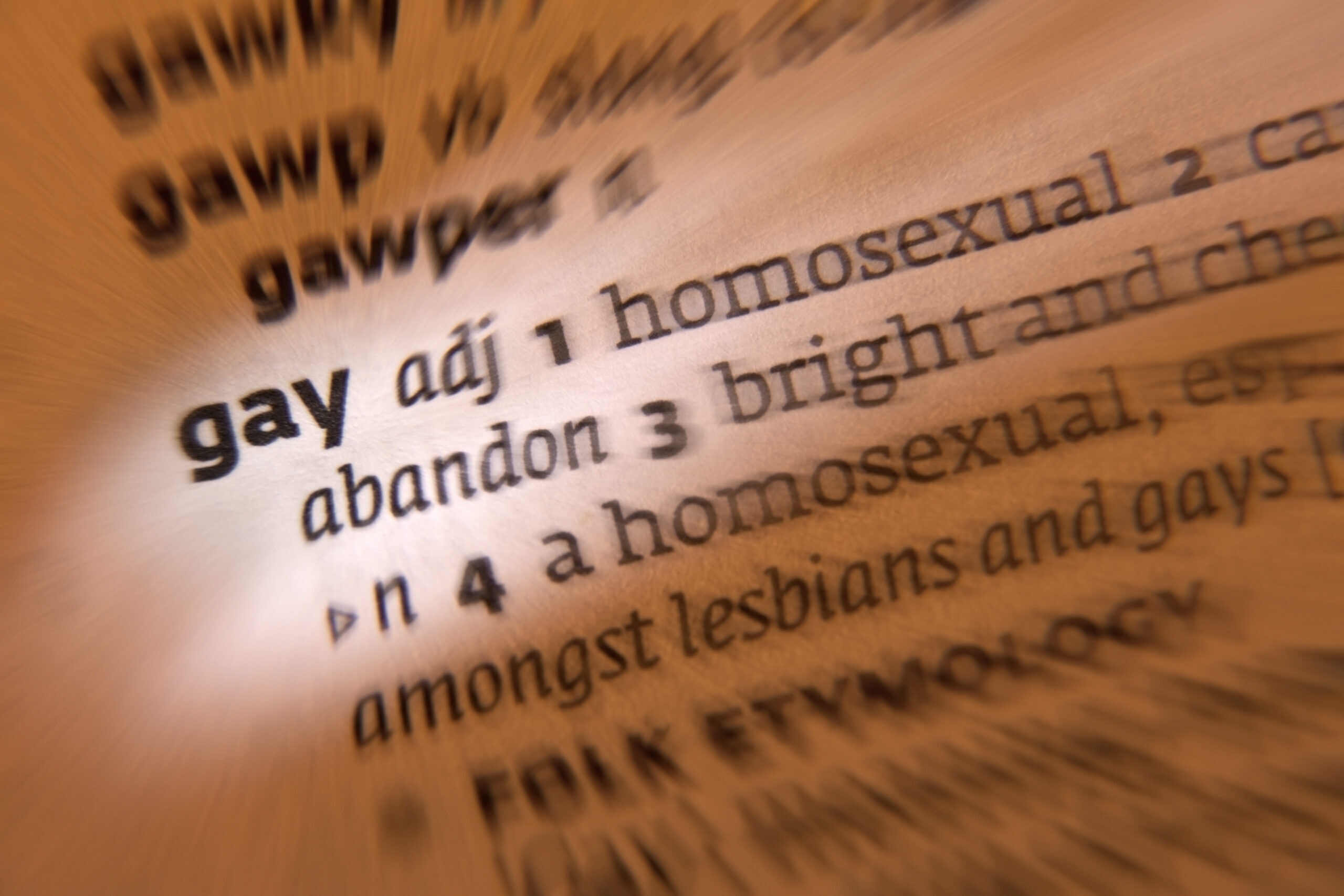Dictionary.com, the widely used online dictionary, has added a slew of contemporary queer terms to its lexicon. Among the 313 new definitions are words like “queerbaiting,” “pinkwashing” and “abrosexual.”
On February 28, Dictionary.com announced the update in a blog article, with the stated goal “to be descriptive—we work to describe and document language as it is really used (not just how we or others may want it to be used).” In addition to the 313 new word entries, there were over 1,000 new and revised definitions of existing words. As Dictionary.com is often at the top of search results when users google unfamiliar words, these definitions are extremely important for educating people about queer identity.
Recently, queer Twitter got a front-row seat to the disasters that can happen when certain terms are misused. Last fall, 18-year-old Heartstopper star Kit Connor was forced out of the closet when so-called fans accused the actor of queerbaiting. Their use of the term can be summed up as: because Connor plays a bisexual character on a TV show, he somehow owes strangers on the internet an explanation of his own sexuality.
So how does Dictionary.com define “queerbaiting”? “A marketing technique involving intentional homoeroticism or suggestions of LGBTQ+ themes intended to draw in an LGBTQ+ audience, without explicit inclusion of openly LGBTQ+ relationships, characters, or people.”
Like all definitions, the wording has to be generalized, but this version does specifically tie the term to “marketing.” Additionally, the mention of “themes” and “characters” refers to fictional properties such TV, movies and books—not real life teenagers who may still be figuring out their sexuality while in the public eye.
A related term that tends to apply to corporations, politicians, or related organizations is “pinkwashing.” Dictionary.com defines it as “an instance or practice of acknowledging and promoting the civil liberties of the LGBTQ+ community, but superficially, as a ploy to divert attention from allegiances and activities that are in fact hostile to such liberties.”
In the identity category, Dictionary.com defines “abrosexual” as “a person whose sexual orientation is fluid or fluctuates over time” and “multisexual” as “a person who is sexually or romantically attracted to people of more than one gender, used especially as an inclusive term to describe similar, related sexual orientations such as bisexual, pansexual, omnisexual, etc.”
All in all, these definitions will help many people familiarize themselves with words that are sometimes accidentally, sometimes cynically misused. As Dictionary.com put it, it’s important to document “language change wherever it’s happening” because doing so will “help us to understand our times.”
Don't forget to share:
Help make sure LGBTQ+ stories are being told...
We can't rely on mainstream media to tell our stories. That's why we don't lock our articles behind a paywall. Will you support our mission with a contribution today?
Cancel anytime · Proudly LGBTQ+ owned and operated
Read More in Culture
The Latest on INTO
Subscribe to get a twice-weekly dose of queer news, updates, and insights from the INTO team.
in Your Inbox













